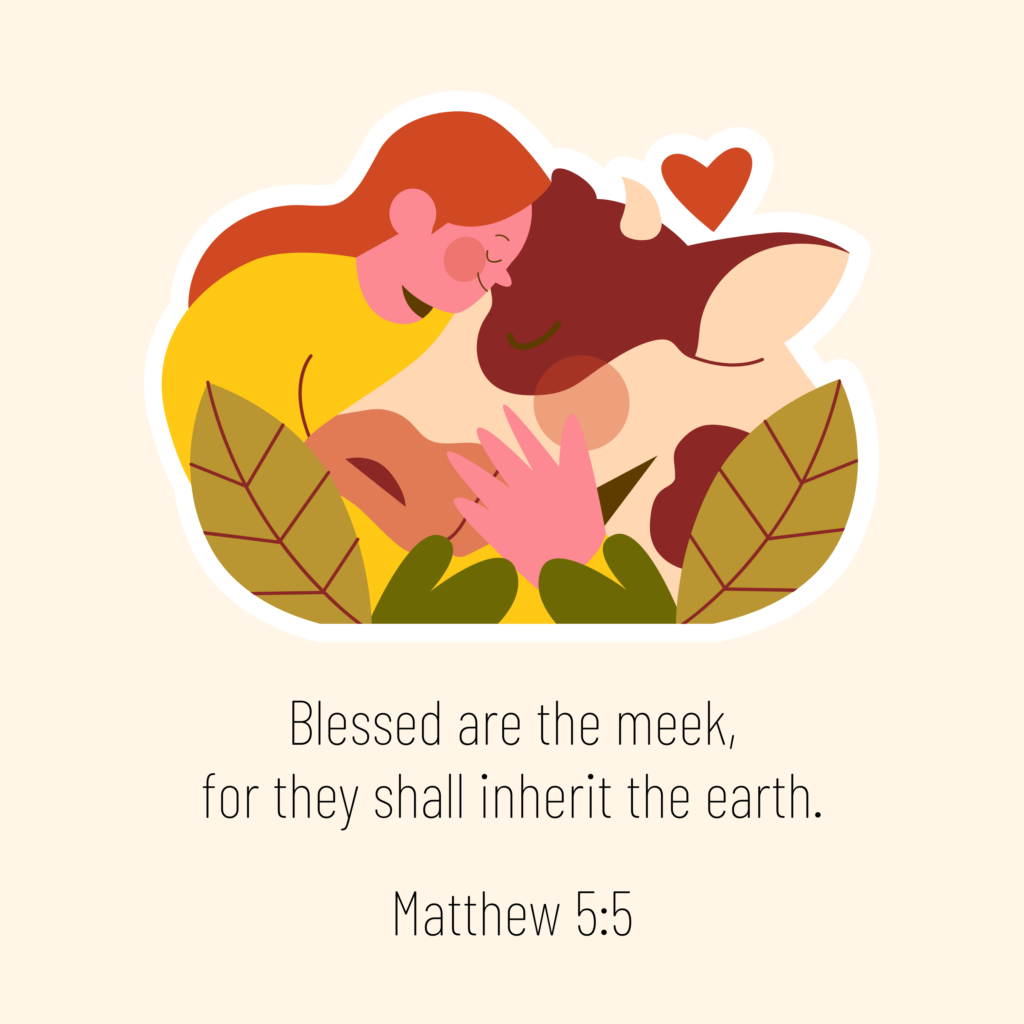We can know right off the bat that meekness is not weakness, because Jesus Himself – who was God incarnate – described Himself as meek.
“Take my yoke upon you, and learn of me; for I am meek and lowly in heart: and ye shall find rest unto your souls.” – Matthew 11:29
Obviously God is not weak, God is the very opposite of weak.
So what does meekness mean?
The first mention of the word “meek” in the Bible is found in Numbers 12:3. The verse states, “Now the man Moses was very meek, above all the men which were upon the face of the earth.” This verse highlights Moses’ humility and gentle spirit, particularly as a contrast to his siblings, Aaron and Miriam, who had spoken against him.
In Number 12, we see that in the face of insult and provocation, Moses did not respond with angry defensiveness. Instead, it was God who defended Moses, and punished Miriam. (Numbers 12:10) Moses’ response in this passage serves as an example of biblical meekness. When there is an offense or even persecution, a meek person responds with patience and grace, trusting in God’s justice instead of taking matters into his own hands.
Qualities like patience and self-restraint require strength. So meekness is not weakness, it involves a deliberate choice to respond with humility, even when one may have the right to assert themselves. Someone who is meek is submitted to God, therefore meekness is strength under control.
God’s choice of a meek man to lead the Israelites shows that meekness is complementary to strength and leadership, not contradictory.
Meekness is a fruit of the Spirit
Meekness is not only a quality that is often celebrated in the Bible, it’s also one of fruits of the Spirit. (Galatians 5:22-23) That means meekness is one of the important traits of a believer who is guided by the Holy Spirit. Meekness comes from having a heart that submits to God’s will, as well as spiritual maturity and wisdom gained through life experiences.
Meekness is also about being teachable, receptive, selfless – allowing God’s guidance to shape our heart and actions toward others.
Meekness is one of the Beatitudes
In Matthew 5:5, Jesus states
“Blessed are the meek, for they shall inherit the earth.”
This beautiful verse shows that God highly values meekness and promises a divine reward in eternity. There are also rewards and blessings in this present life for Christians who live with meekness, such as peace, healthy relationships, spiritual growth and God’s favor.
Meekness and biblical veganism
What does meekness have to do with biblical veganism? Meekness involves humble submission to God’s will, and Christian vegans have chosen to honor God’s perfect will in regard to how we should relate to animals.
- God wants us to be gentle, not violent. (Ephesians 4:2, Psalms 11:5)
- God wants us to be kind and merciful, not self-serving. (Proverbs 11:17, Philippians 2:4)
- God wants us to have an eternal perspective, rather than a temporal, worldly perspective. (Col 3:2, 1 John 2:15-17)
- God wants us to discern and honor His perfect will, rather than acting like the world acts. (Romans 12:2)
Meekness is basically the opposite of pride. Pride, unfortunately, is at the root of the carnist mindset among most Christians. Many Christians take pride in the fact that we (unlike the animals) were made in the image of God, and use that as a justification for the exploitation of animals. But that is the exact opposite mindset that God wants from us!
Being made in the image of God (Imago Dei) involves embodying certain qualities or attributes of God. Qualities like meekness, kindness, gentleness and selfless love were exemplified by Jesus, and that is how God wants us to act toward others. Others includes the animals, who are innocent and at our mercy. Being made in God’s image should not elicit pride, or a self-serving mindset, or callousness toward God’s beloved animals.
I believe that biblical veganism goes hand in hand with biblical meekness, which is about submission to God, and considering others and not just ourselves.
Conclusion
In summary, meekness is not weakness; it reflects strength under control. It is an attitude that doesn’t seek to impose oneself over others but instead shows gentleness and kindness. It allows us to reflect Christ’s character in our interactions with those around us, both humans and animals.
